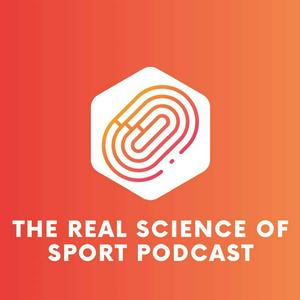Become a Supporter - it's worth it!
Enjoying the Real Science of Sport? Show your support with a monthly pledge, become a Member of our Supporters Club, and get way more value from the discussions after the shows, in our world class community chat rooms!
Show notes
The Winter Olympics are a weekend from concluding, and so much has happened, it's been hard to keep up. But we try! In this show, we look at the Nutella doping defence of an Italian biathlete. We discuss the dramatic performance of favourite Ilia Malinin, who confessed to "traumatic thoughts" before his ill-fated free-skate performance in Milan.
There was no scoring controversy in that men's figure skating programme, but there have been in other events - Ice Dance and Big Air were affected by allegations of nationalistic bias, and then in the moguls, there was tie for gold, leading Ross to wonder about the credibility of a scoring system that uses subjective scoring to produce a tie down to the 1/100th of a point. Just share the gold, we reckon!
One athlete who has had no problems, either with pressure or opponents, is Johannes Hoesflot Klaebo, now the most decorated Winter Olympian ever, and basically unbeatable in shorter races. Can he deliver the 50km too? Another who has delivered on the promise is Jordan Stolz, though he was denied the 1500m speed skating gold. Reports of his cycling process have led to speculation that he could have a great career in cycling, should he fancy it. We discuss the barriers to that transition, and wonder how he might go about it.
Away from the Games, there's an indoor world record in the 800m, which augurs well for Keely Hodgkinson's longer term aspirations of the outdoor World Record, and which puts Femke Bol's aspirations into perspective. The head to head rivalry may be a season or two away - we explain why Bol needs more than a single season.
And Finally, we return to the snow, where Ski Mountaineering made its debut at the Olympics and left us feeling considerably underwhelmed and disappointed in the structure of the event.
Links
The Nutella defense - report on Rebecca Passler's doping case
The CAS 'non-decision' on Passler's case, but with a few details of what was being argued in her defence
A New York Times article on Ostarine and accidental doping ($ paywalled)
The research paper that arose out of the "sweat contamination" defence against an ostarine positive test
Article on Malinin's free skate drama
David Epstein's article on Malinin and choking
Jordan Stolz the cyclist: An article discussing his prospects on two wheels
Hodgkinson's 800m World Indoor Record
Hosted on Acast. See acast.com/privacy for more information.


